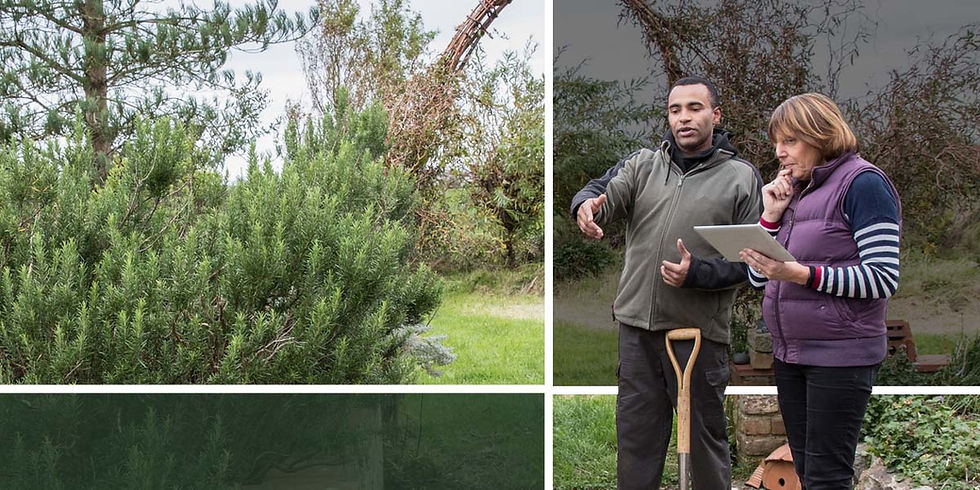Do this, not that, in the March landscape
- Rooted in Nature

- Mar 10, 2023
- 2 min read
Updated: Apr 17, 2025

The mild winter gives way to a spring calendar--but, gardeners, not so fast! For some ideas on what to do--and not do--in the March landscape, please read on:
Don't do this in March:
Don't spread fertilizers. If you live in zone 6, or colder, March is too early. Wait until soil temperatures are greater than 50 degrees for several days in a row. Use a soil thermometer. Also, the full burst of forsythia bloom is a pretty good indicator.
Don't remove mulch from perennials. That's best done on April 15 or later. In our area, the frost-free date is about May 1 - May 10.
Do this in March:
Get soil tests as soon as soil can be worked to a depth of about six inches. See below for some soil test ideas and resources.
When soil is no longer frozen, it's safe to spread lime (if a soil test indicates the need). In our area, that's usually after March 15--sometimes as late as April 1. It is best to spread lime several weeks or even months ahead of fertilizer. We have become fans of fast-acting lime, which does its work in much less time than conventional lime and usually requires only one application.
Plant some moss in areas where nothing else seems to grow. Pick up patches of moss and press them onto bare ground. Moss doesn't have roots like other plants, so it's okay to pick up thin slices from the soil surface. Moss thrives on consistent moisture, above all else, and spring is a good time to get it established. Once you've patched in the moss, walk on it!
Use cold frames to get a two-week head start on the growing season and as much as four extra weeks at the end of the season. Milk jugs are a great source of free "cold frames."
Turn compost piles. Warmer temperatures mean more microbial activity, which leads to finished compost faster.
Finally, it is a good idea to keep the bare soil covered with mulch any time of year. It needn't be expensive material--baled straw is an excellent material, especially for vegetable gardens. Chopped straw or "cooked" chopped hay are also good. Keep in mind that "uncooked" hay contains weed seeds which will happily sprout in your gardens.
We work with residential and commercial lawns across Maryland - especially in Baltimore and Harford counties. Contact us today to learn more and schedule a consultation with our lawn care experts..



Comments